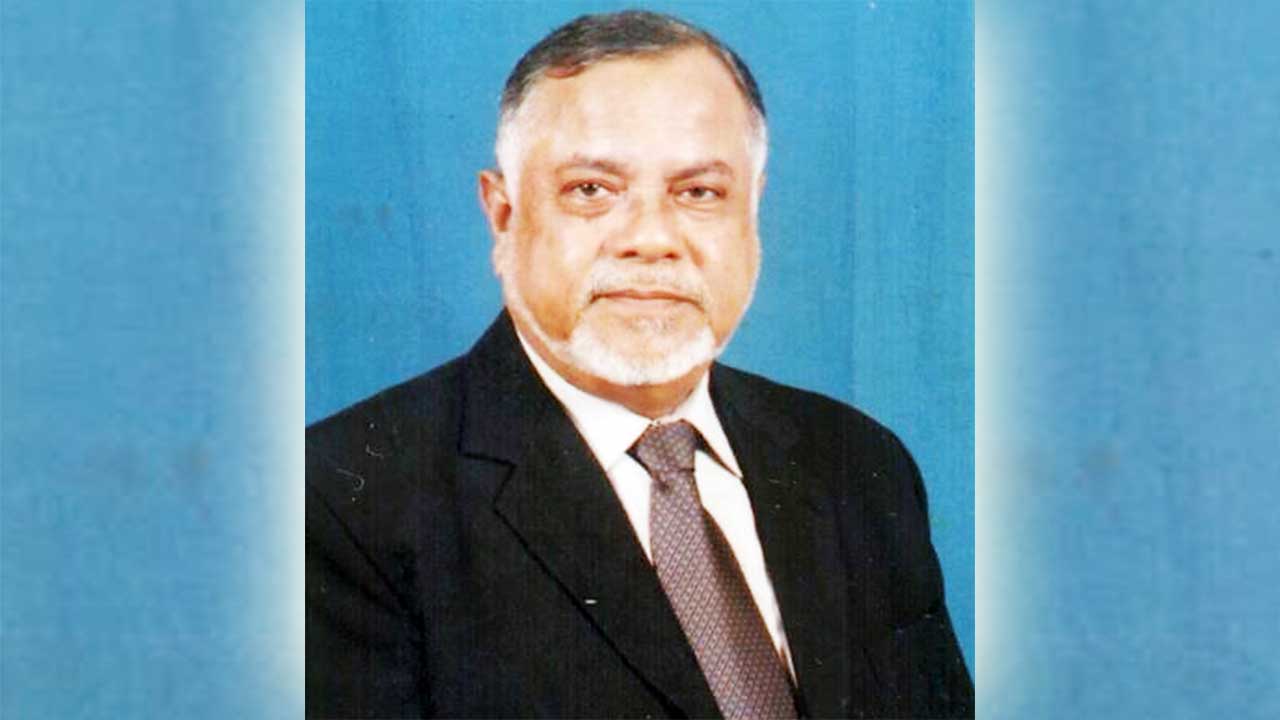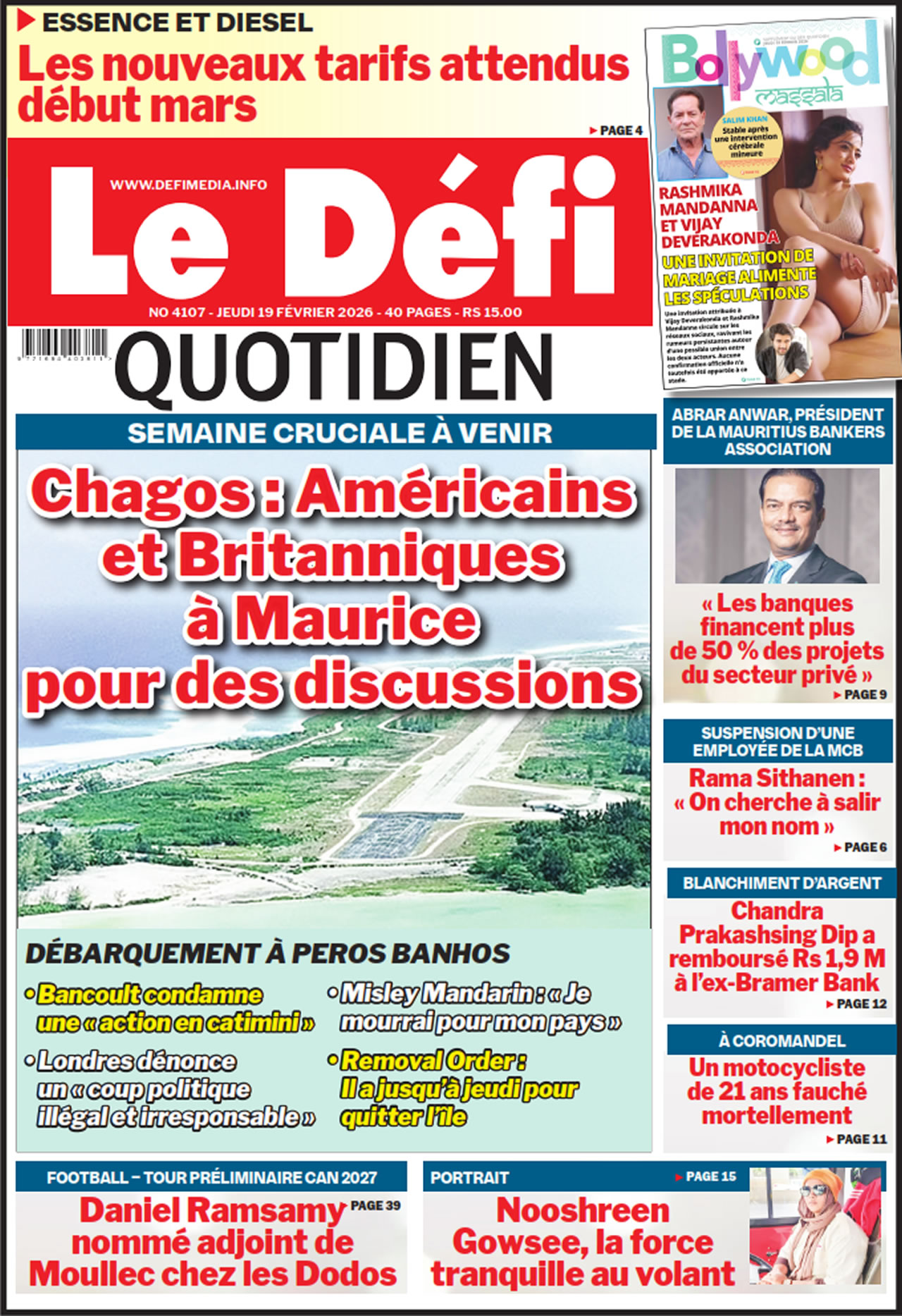
Abdool Raouf Bundhun was born on 14 January 1937 at Amaury, Rivière du Rempart. He is one of the rare three former parliamentarians elected at the 1967 general elections that gave Mauritius its independence. The other two are Yusuf Mohamed and Ramnath Jeetah.
Following the 1967 general elections, Raouf Bundhun served as member of the Legislative Assembly until 1976 in his capacity as Parliamentary Secretary, Ministry of Youth and Sports and as Minister of Power, Fuel and Energy. He also served as a Municipal Councillor of Port Louis and as Mayor of Quatre Bornes. He again served as Member of the National Assembly from 1995-2000. He was Ambassador to Paris from 2001-2002 before he took oath as Vice-President of the Republic in 2002 and remained in post until 2007.
What were your feelings as a witness at the ceremony of the hoisting of our national flag on 12 March 1968?
First of all, our whole self was flooded with feelings of an abounding joy and a legitimate pride. At long last, after all the trying moments that the country had passed through, we were breathing the air of freedom and taking the helm of the country in our own hands.
Can you imagine what it was like attending the Flag Raising ceremony that was held at noon on that 12 March 1968 amidst an absolute silence? It was one of the most solemn moments that the country was living in the annals of its history. Intense emotion filled the hearts of the 150,000 - strong crowd as the Union Jack was lowered and the four-coloured Mauritian flag proudly went up to flutter in the sky to the glorious tune of "Motherland," our own national anthem. Mauritius was sealing its new destiny for the better or the worse. A 31-gun salute by the Special Mobile Force thundered in the valley while the sirens of the ships anchored in the harbour echoed throughout the city.
As a privileged participant in this fight for freedom, I recall with a tinge of nostalgia the events of that exceptional day. After having saluted the Mauritian flag as it caressed the sky for the first time, Sir Seewoosagur Ramgoolam made his way back to the 'Loges'. There, he was warmly and heartily greeted by Razack Mohamed. The two stalwarts of Mauritian politics and architects of Mauritian independence embraced each other and cried like two little boys, so emotional a moment they were living, and that we were living all-together. 'We did it!' they seemed to be saying to each other, as tears rolled down their cheeks.
In the 1960’s the majority of Mauritians shared their values and lived like a family caring and sharing. Why this noble attitude has changed, now that we are a free nation?
In some ways, mass communications have killed inter-relationships between people, be they the next door neighbours or the colleagues at work. On the other hand, parents are so much taken up in work that children are left to themselves and they scarcely have time for a family walk not to say a talk. Our young boys and girls are not being taught to take responsibilities. Many parents have simply abdicated, leaving the upbringing of their kids to unwilling, unprepared teachers.
It would seem that many of our young people are left to themselves, to grow up by themselves, to be reared by their peers, the television, the Internet and other gadgets. The human touch is sadly missing for their breeding and development. Our schools, on the other hand, hardly impart any proper education; they have become modern factories where they manufacture examination class students.
I do not want to compare the youth of today with those of my time. Half a century separates us. We don't share the same values, and these seem to have degenerated. You just have to see the attitude of certain drivers on the roads to understand the difference in upbringing and values.
“ It’s a real pity that young people today do not make proper or adequate use of facilities that are put at their disposal. They have a wide variety of choices and sources of information and knowledge that are offered by modem technology."
It is true that change is the law of nature, but even in nature certain things remain perennial, like the sun, the moon, the seasons, etc. It's only when man tampers with nature, as he has been doing lately, that we meet with disasters like global warming. So is it with values. When there is a breakdown of values we head towards chaos. It would seem that there has been a characterised failure on the part of adults to inculcate the right values in the young ones.
Why the ideals and the dreams we had for our country during our youth did not survive. Who are responsible for their demise?
We suffer enormously from various foreign influences that are not necessarily conducive to the creation of positive attitudes. Globalisation has made the world smaller but not a saner and safer place. We live in a cut-throat world where the rule is the survival of the fittest.
Where have all our youth clubs gone? In our days these clubs used to be like institutions of learning which prepared the young to take responsibilities early in life, responsibilities at home and in the society. Through seminars, workshops, discussions, debates, drama, sports, literary and other cultural activities, we received education for life and were taught to become responsible citizens. Through competitions and joint regional and national activities, we were acquainted with other young people around Mauritius.
Educational facilities were scanty, especially in the rural regions. Secondary education was not free and families had many children. Often, the eldest son in the family had to do manual jobs so that the younger siblings could be sent to school. There are many cases where the eldest brother was a mere labourer or caretaker or tailor while the younger ones have become professionals and top officers in the Civil Service. A strong link bonded the members of the family. The young ones, conscious of the sacrifices of their parents to provide them with education, put in the necessary effort to succeed. Today's media facilities were inexistent and they had to read a lot and learn by themselves to supplement what they were taught at school.
Why did we fail to achieve Nationhood and to live up to the slogan ‘One Nation, One People’? Is there any hope that someday we see it come alive?
I can say that with the advent of independence, people of my generation felt a lot for the building of a new nation, disregarding the four ‘C’s – caste, colour, creed, community. «Mette de côté kominoté!» ( put aside community) was a real cry of the heart. I believe that some time in the future things will change for the better through education of the masses. Intercultural activities can also contribute to this lofty vision of unity.
Of course obstacles on the way are still numerous. It's a real pity that young people today do not make proper or adequate use of facilities that are put at their disposal. They have a wide variety of choices and sources of information and knowledge that are offered by modem technology. It is sad to observe that these sources are tapped for wrong uses. Maybe this is a price that we are paying for our industrialisation and development. It is said that everything comes with a price. But do we have to voluntarily jump into chaos and confusion?
All is not lost yet, but there isn't much time. We must by all means save whatever can be saved and prepare the ground to prevent further decadence. Only a return to values can save the world. I leave it to political and religious leaders, teachers, sociologists and social workers and others to devise ways and means to do it.
However, it would be wrong to generalise and put all our young people in the same basket. Fortunately, we have quite a number of youths who are imbued with values, are well-mannered, responsible, and are the pride of the country. They shine in sports, in the arts, in education, in Information Technology, and the country can rely on them. Though subject to nefarious influences, they are still the hope at achieving our goal of nationhood.
What drove Mauritians to bury themselves in extremism and radicalism?
I will attribute them to lack of opportunities in the field of employment and the widening gap between the rich and the poor. We have facilities for better and higher education, and young people who have attained high levels of training in their field are naturally more and more demanding for a good job and a good pay packet. It is often by having recourse to extreme and radical means that people find an outlet to their accumulated frustrations.
 J'aime
J'aime














